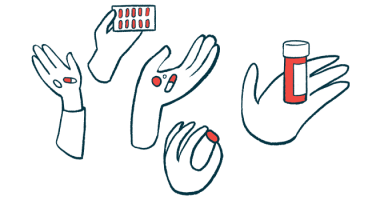A new gene therapy for DMD offers us a buoy of hope
The recently approved Elevidys is allowing me to expand my dreams again
by |

My journey as a mom of three boys with Duchenne muscular dystrophy (DMD) has had its fair share of highs and lows, with my hope waning during the lows. But now, my hope is as strong as it’s been in a few years because of the late June approval of a gene therapy for DMD.
The U.S. Food and Drug Administration (FDA) approved the therapy, Elevidys (delandistrogene moxeparvovec-rokl), for ambulatory children with DMD ages 4-5. Gene therapy was discussed when my sons were little, and I’d hoped it would happen in their lifetimes. But as a decade passed, my hope that such a therapy would arrive in time for them slowly dissolved.
Because we’ve been participating in a Translarna (ataluren) clinical trial for DMD patients with nonsense mutations, I quit paying attention to other and newer studies, trials, and therapies. I started to accept that Duchenne would do what it would do, and we’d deal with it. We continued to make a wonderful life without the promise of the better tomorrow that we’d hoped new therapies, including gene therapy, would bring.
I’ve hoped that if my three daughters — Lexi, 22, Mary, 8, and Callie, 18 months — give me grandsons with DMD, that those children’s future would be much brighter. When my own boys participated in trials, I told them they were making a difference to help not just future generations, but maybe even their future nephews.
Renewed hope
But now, my sons could benefit directly from gene therapy. This fall we plan to screen for and, I hope, enroll Max, 17, and Rowen, 14, in the ENVISION gene therapy study for nonambulatory boys. Because Charlie, 12, is still ambulatory, he doesn’t meet the requirements to screen for this study in the United States. Therefore, we’re exploring and praying for options that would make it available for him, too.
It’s not promised that any of our boys will have access to this therapy through the trial; there’s a screening process that they could fail. Charlie won’t have access until the FDA approves Elevidys for older boys or we find another trial open to ambulatory boys.
So we have lots of what-ifs and concerns. We also don’t know how well the boys would tolerate the medicine if accepted in the trial. But the thought of possibility has restored faith and hope that had been lying dormant.
Meanwhile, Lexi has started the screening process to see if she’s a DMD carrier. We could’ve had her tested at a much younger age, and she sometimes asked for it. But I wanted her to wait. I don’t know if that was right or wrong, but I hated the idea of her making life decisions based on her carrier status, and I wanted to leave it unknown until she was ready to talk about marriage and plan a life with someone.
That time in her life has come, and I wholeheartedly support her decision. I’ve helped her navigate the Decode Duchenne program, which Parent Project Muscular Dystrophy offers. I shared information with our family doctor so that he could request a genetic test kit, which he’ll use for Lexi before sending it off to a special lab. Then the waiting game continues.
I used to worry about finding out if Lexi and my other daughters were carriers. I still worry; as much as I know I had no power over me being a carrier and passing it on, I’ve always experienced guilt. And I know I’ll have difficulty forgiving myself if my girls are carriers.
But my hope today is at a high point, and it coincides almost perfectly with Lexi’s carrier testing. Elevidys and similar potential therapies could change what Duchenne looks like. If my daughters are carriers and have sons with DMD, I believe their cases will never look like the Duchenne of the past or the Duchenne their brothers navigate.
That is hope. And it’s a buoy I’m holding on to as we go through Lexi’s carrier testing while pursuing a gene therapy clinical trial for the boys. Both have the potential for stress, but hope is a medicine of its own, at least for this mom.
Note: Muscular Dystrophy News Today is strictly a news and information website about the disease. It does not provide medical advice, diagnosis, or treatment. This content is not intended to be a substitute for professional medical advice, diagnosis, or treatment. Always seek the advice of your physician or another qualified health provider with any questions you may have regarding a medical condition. Never disregard professional medical advice or delay in seeking it because of something you have read on this website. The opinions expressed in this column are not those of Muscular Dystrophy News or its parent company, BioNews, and are intended to spark discussion about issues pertaining to muscular dystrophy.









Comments